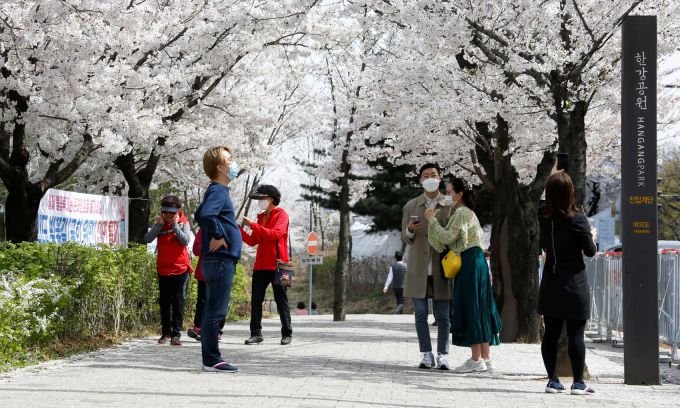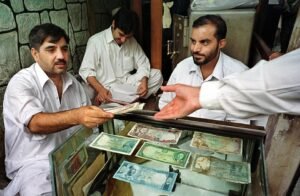
F1 quarantine tips at home help Korea control Covid-19 4
Just one month later, the outbreak in South Korea was effectively controlled.
Public health crises, including the SARS (severe acute respiratory syndrome) pandemic in 2002, the H1N1 influenza epidemic in 2009, and MERS (Middle East respiratory syndrome) in 2015 have helped South Korea accumulate
To separate people at risk of contracting the virus from the healthy population, as well as mild infections and more serious cases, South Korea divides people into different groups.
The effectiveness of the anti-Covid-19 strategy in Korea was proven in April 2020, when a 58-year-old man who had voted and visited several restaurants was found to be infected with nCoV.
People walk near a cherry blossom street closed to prevent Covid-19 in Seoul, South Korea, on April 1.
According to instructions from the Korea Centers for Disease Control and Prevention, anyone who has been in contact with a nCoV infection case, also known as F1, must self-quarantine for 14 days.
F1 teams will receive quarantine notices from provincial or local management leaders, along with specific quarantine regulations.
With a `zero-tolerance` quarantine policy, Korean law prohibits people under quarantine from leaving their location, usually their home, while strictly complying with the requirement to stay away from others, including family members.
People who self-isolate are assigned to a local government official for management.
Efforts to control Covid-19 were then significantly supported by a smartphone application called Self-Isolation Safety Protection, developed by the Korean Ministry of Internal Affairs and Safety.
Those who are self-isolating are required to install the application for 14 days, to communicate and update information to management staff.
People who violate quarantine regulations will be required to wear electronic bracelets connected to the application.
`The number of people self-isolating nationwide has reached about 30,000, while the human resources responsible for local monitoring are limited. This application is a support tool to help management work more effectively,`
However, the government has not made installing the app mandatory, as some people may have difficulty downloading or using it.
`People can intentionally leave the quarantine area, but there is also the possibility of confusion. However, due to the risk of secondary infection, we hope the app can help prevent unwanted incidents.`
In addition to checking the health status of people in self-isolation twice a day, the management team also provides other support, including food, toiletries, and online video streaming services to
Yung In Chae, a Korean editor, said testing, tracing and quarantine are the three main pillars of South Korea’s public health policy.
For months, the Korean Ministry of Health has held daily press conferences to update people and convey the best epidemic prevention measures, such as social distancing and frequent hand washing, to build trust.
After Covid-19 broke out, Paul Choi, a consultant living in the capital Seoul, said the subway was much less crowded, and large gatherings at bars and restaurants were no longer there.
`We still have memories of MERS, as well as other epidemics, and understand that this is a long run. Things are better than before, because the whole society is fighting together,` Choi explained.







